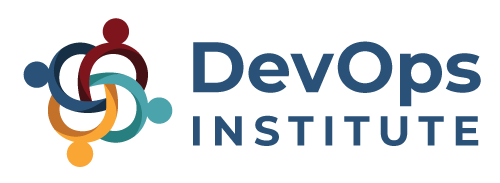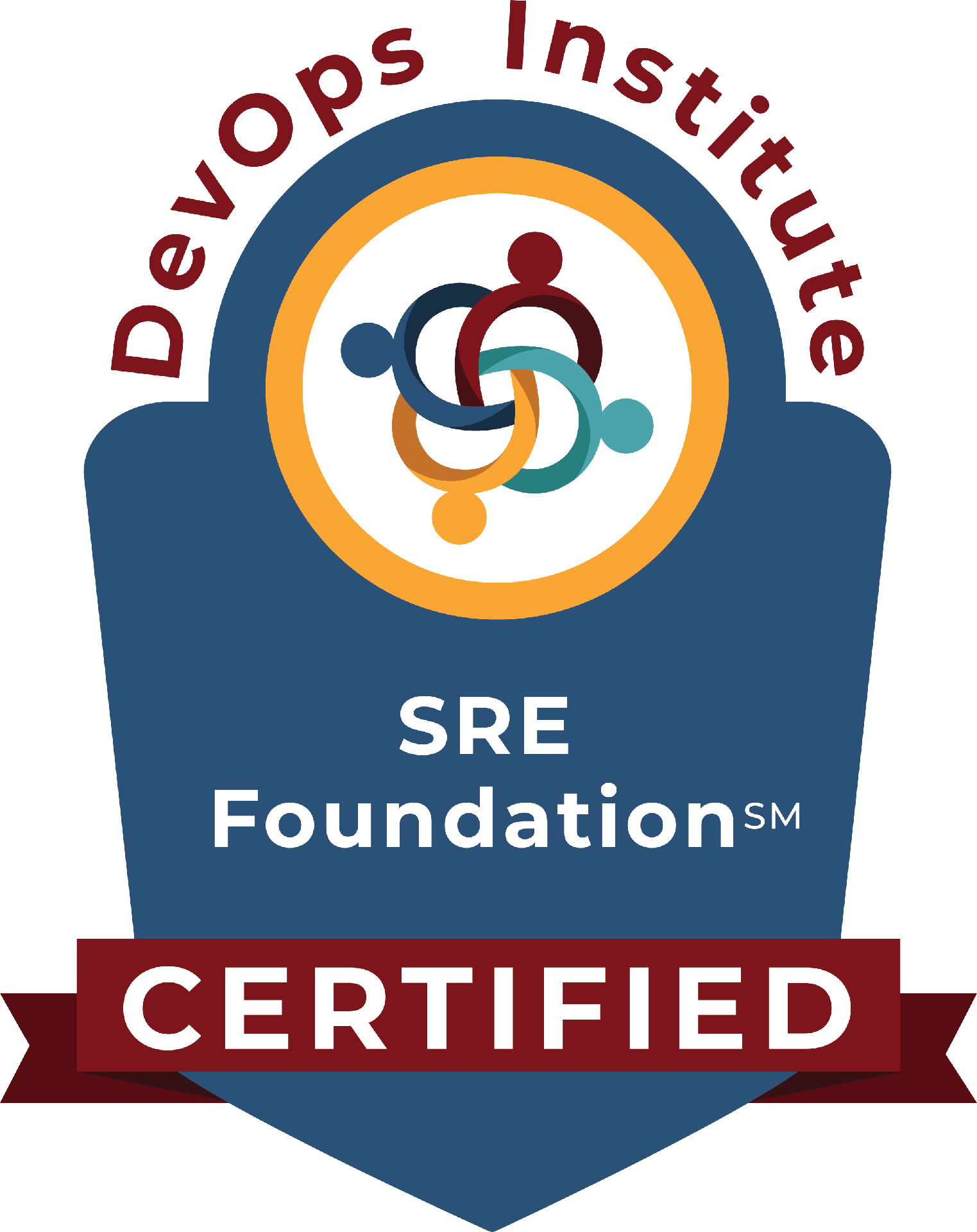Site Reliability Engineering (SRE) Foundation℠ Course


What will you receive:
- Sixteen hours of instructor-led training and exercise facilitation
- Digital Learner Manual (excellent post-class reference)
- Participation in unique exercises designed to apply concepts
- Sample documents, templates, tools and techniques
- Access to exclusive Agile Thinkers Academy Digital library
- Agile Thinkers Academy Slack community
- Agile Thinkers Academy Certificate of Attendance
Attendees will receive the Certification Credential:
Successfully passing (65%) the 60-minute examination, consisting of 40 multiple-choice questions, leads to the SRE (Site Reliability Engineering) Foundation certificate. The certification is governed and maintained by the DevOps Institute.
PMI Professional Development Units (PDU)
Attendees may be eligible to apply for PDU towards their continuing education requirements with PMI.
Upon completion of this course you can get up to 16 Scrum Education Units (SEUs) in addition to 16 Project Management Institute PDUs by participating in our two-day course. Seats are limited. Register today!
Description
Today’s organizations deal with a higher volume of change in a more complex tech environment leading to a higher risk of outages and incidents. IT teams must improve service reliability and system resiliency. With automation and observability becoming key factors for more efficient and rapid deployments, the SRE profile has become one of the fastest-growing job roles.
The SRE (Site Reliability Engineering) Foundation℠ course is an introduction to the principles & practices that enable an organization to reliably and economically scale critical services. Introducing a site-reliability dimension requires organizational re-alignment, a new focus on engineering & automation, and the adoption of a range of new working paradigms.
The course highlights the evolution of SRE and its future direction, and equips participants with the practices, methods, and tools to engage people across the organization involved in reliability and stability evidenced through the use of real-life scenarios and case stories. Upon completion of the course, participants will have tangible takeaways to leverage when back in the office such as understanding, setting and tracking Service Level Objectives (SLO’s).
The course was developed by leveraging key SRE sources, engaging with thought-leaders in the SRE space and working with organizations embracing SRE to extract real-life best practices and has been designed to teach the key principles & practices necessary for starting SRE adoption.
This course positions learners to successfully complete the SRE Foundation certification exam.
Objectives
The learning objectives for the SRE Foundation course include a practical understanding of:
- The history of SRE and its emergence at Google
- The inter-relationship of SRE with DevOps and other popular frameworks
- The underlying principles behind SRE
- Service Level Objectives (SLO’s) and their user focus
- Service Level Indicators (SLI’s) and the modern monitoring landscape
- Error budgets and the associated error budget policies
- Toil and its effect on an organization’s productivity
- Some practical steps that can help to eliminate toil
- Observability as something to indicate the health of a service
- SRE tools, automation techniques and the importance of security
- Anti-fragility, our approach to failure and failure testing
- The organizational impact that introducing SRE brings
Course Audience
The target audience for the SRE Foundation course are professionals including:
- Anyone starting or leading a move towards increased reliability
- Anyone interested in modern IT leadership and organizational change approaches
- Business Managers
- Business Stakeholders
- Change Agents
- Consultants
- DevOps Practitioners
- IT Directors
- IT Managers
- IT Team Leaders
- Product Owners
- Scrum Masters
- Software Engineers
- Site Reliability Engineers
- System Integrators
- Tool Providers
Prerequisites
An understanding and knowledge of common DevOps terminology and concepts and related work experience are recommended.

Training Remotely | Guidelines for a Successful Experience

Congratulations on joining Agile Thinkers remote courses. We are committed to facilitating a pleasant and enriching experience for all our attendees.
That's is why it is critically important that we are clarifying how we're going to work together to be most effective. So, let's develop some working agreements and suggestions to encourage the type of team environment that we want to foster during our training sessions.
Before the training starts:
1. Inform your co-workers/colleagues what will be the time you're attending training, and you shouldn't' be interrupted;
2. Look for a comfortable and quiet place to set your training spot;
3. Reduce distractions, noises and background interference;
4. Test your internet signal and guarantee you have a good connection;
5. Please please take some time to explore the tools and how to login;
6. Visit the toilet 10m before the session starts;
7. Stay hydrated;
8. Bring a notebook and a pen with you;
9. Limit interruptions from family members;
10. Make sure you turn off Outlook, gmail, Slack, WhatsApp, Skype or other sources of interruption;
11. If you can, select flight mode on your phone;
12. Test your earphones.
During Training:
1. While there are no questions, confirm you are mute;
2. Ask for help if you have any questions unmuting yourself or sending a message in chat;
3. Use Chat area to address the trainer some questions. As soon as possible, we will give feedback.
4. Respect the Time-boxes;
5. Be on time so you can deliver on time;
6. Don't accept calls while you're on training unless is extremely necessary and vital for you;
7. Please keep your camera on;
8. It's completely forbidden for students to record audio or video of any kind or take pictures from the sessions without written agreement;
9. For training. and quality assurance purpose of our staff, we can record video, audio and the chat of all sessions;
10. Have fun! Enjoy your course!
Make sure you also check our FAQs
All trademarks mentioned are the property of their respective owners.